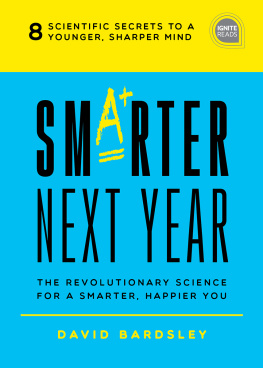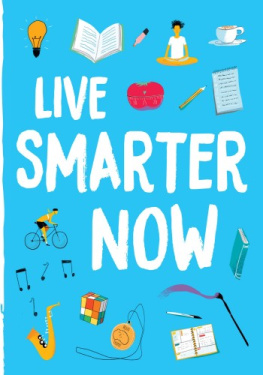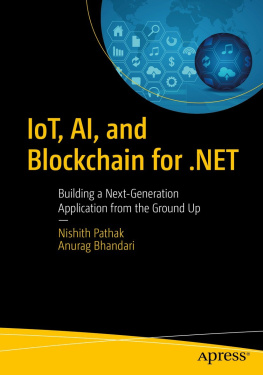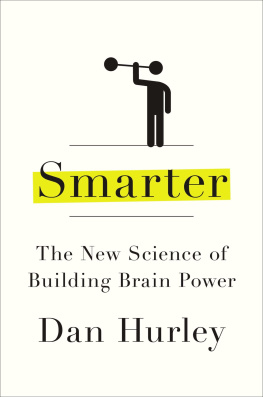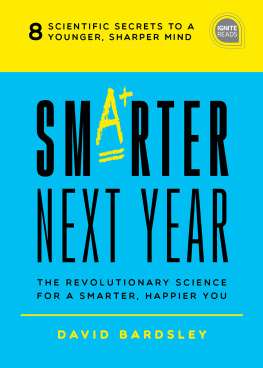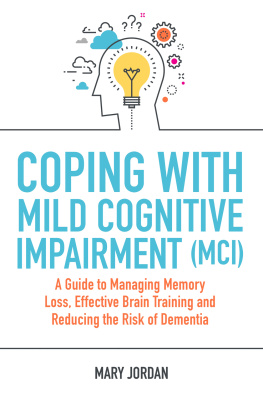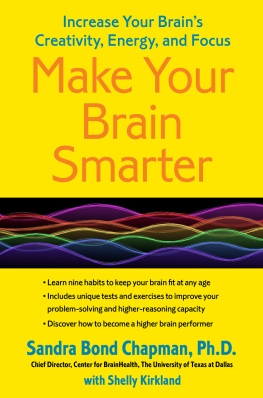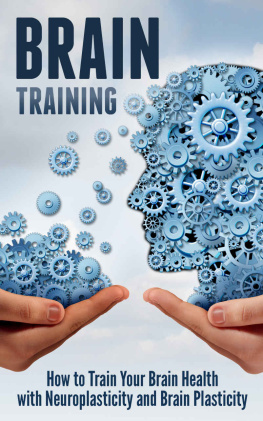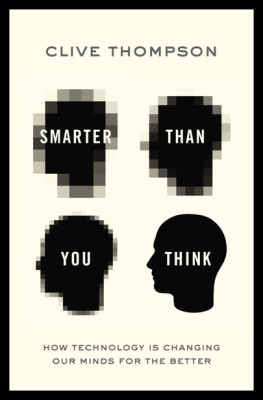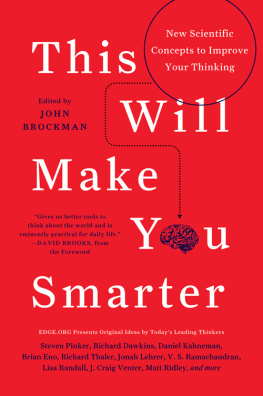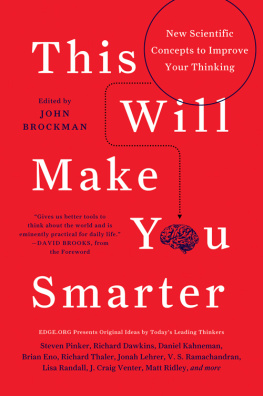This work would never have come to fruition without the help and support of Suzanne Balcom, Kim Hunter, Lee Pardee, and the incredible team at Sourcebooks. To these people I owe everything. My heartfelt thanks and grateful appreciation.
INTRODUCTION
My Wake-up Call
It was a dark and cold Friday afternoon late in November as I drove toward home. I decided to drop by the local supermarket to pick up some groceries for the weekend. The first item on my list was granola, so I made my way to the bulk food section, knowing they had six or seven different types of granola to choose from. For those unfamiliar with how a bulk food section in a grocery store works, let me explain. Each food item is in a separate bin, and each bin has its own five-digit identification number, which is necessary for the cashier to enter at checkout. I selected the granola, scooped it into the plastic bag, attached the identification tag, and then looked for the pen to write down the identification number. Someone had taken the pen. No big deal, I thought. It is only a five-digit number. I can certainly remember a five-digit number.
I repeated the number to myself. 86372, 86372, 86372, 86372, got it. I threw the granola into my cart and continued shopping. Fifteen minutes later, I was ready to check out, but it was a Friday afternoon and there were huge lines. I eventually made my way up to the cashier. She was a young girl and very impatient. Without even looking up, she grabbed my grocery items and started scanning them rapidly. When she picked up the granola and looked for the identifying bin number, I said, Im sorry. I didnt write the number on the granola because someone had taken the pen, but the bin number is 867 8763 87623 No, 86723!
As I fumbled trying to remember the number, I heard someone at the back of the line whisper, Hes having a senior moment. Everybody chuckled. Except for me. I did not chuckle, I could not chuckle, because I found myself in a state of shock. Not only had I forgotten a simple series of numbers, I was completely humiliated. To make matters worse, just two weeks prior I had sat beside my mother in the psychiatrist office as she received the devastating diagnosis: Alzheimers. I was clearly worried for her future and my own.
After I left the grocery store and got into my car, I just sat there for a few moments thinking to myself, What just happened in there? I am fifty-eight years old. How could I possibly be having a senior moment?
Well, that was my wake-up call, my epiphany, my aha! moment! The very next day, I started my eleven-year intensive research into what causes these so-called senior momentsthe decline in cognitive abilityand what can be done about it. What I discovered was truly amazing and transformative for me. During the course of my research, I came across countless stories of others who dramatically changed the trajectory of their lives by understanding and applying the principles provided in this book. I now travel throughout North America presenting this information in seminars more than sixty times per year. The intention of this book is to share that transformative information with you.
The popular understanding of cognitive ability and its declinecognitive impairmentis full of myths and misconceptions. In the chapters that follow, we will debunk many of those myths. The chief myth that we will dispel is that we are born with a certain amount of intelligence, which we inherit from our parents, and that amount of intelligence remains fixed and can never be increased throughout our lifetimes. I am going to present you with the latest scientific information and the evidence-based best practices for improving our cognitive abilities at any stage of life, whether we are 6, 66, or 106.
But before we dive in, Id like to define some key terminology I will be using throughout the book:
COGNITIVE ABILITY: the brains ability to preform various tasks, such as learning, memory, attention, deduction, and concentration. Knowledge is the end result of these tasks.
NEURON: the primary brain cell associated with intelligence. Humans have one hundred billion of these cells and each cell has ten thousand branches connecting it to other brain cells. This makes up our neural network.
NEUROTRANSMITTER: chemicals which transmit the electrical signal across the tiny space between neurons. (Neurons never physically touch one another so they rely on neurotransmitters to transmit the electrical signal.)
EXECUTIVE FUNCTION: an umbrella term for the neurologically based skills involving mental control and self-regulation. It simply refers to a list of abilities (refer to the box below) people who we deem to be very clever seem to possess. These abilities are considered to be the higher order of the human intellect. This is what truly sets us apart from the other primates.
List of Executive Functions
Goal setting
Flexibility
Inhibiting
Executing
Organizing
Problem solving
Pacing
Sequencing
Initiating
Using feedback
Self-monitoring
Generalizing
Shifting
Prioritizing
Planning
You were given your genes, but what you do with them is up to you.
DAVID BARDSLEY
CHAPTER 1
Intelligence
I am going to ask you to take a few moments and reflect on your own life. See if you can identify the time of your peak mental ability, meaning the time period when your cognitive powers were at their best. When you could take in large amounts of new information quickly, understanding it easily. When your recall was fast, sharp, and accurate. For some of you, it may be right now, at this current time in your life, but others often point to some time in the past. Many say it was perhaps their high school years or their college years. Certainly, those are times in our lives when we made a great deal of effort to take in a large amount of information in a relatively short period of time, but it is not necessarily the time of our peak cognitive abilities. In fact, the human brain does not fully mature until we are into our mid- to late-twenties.

